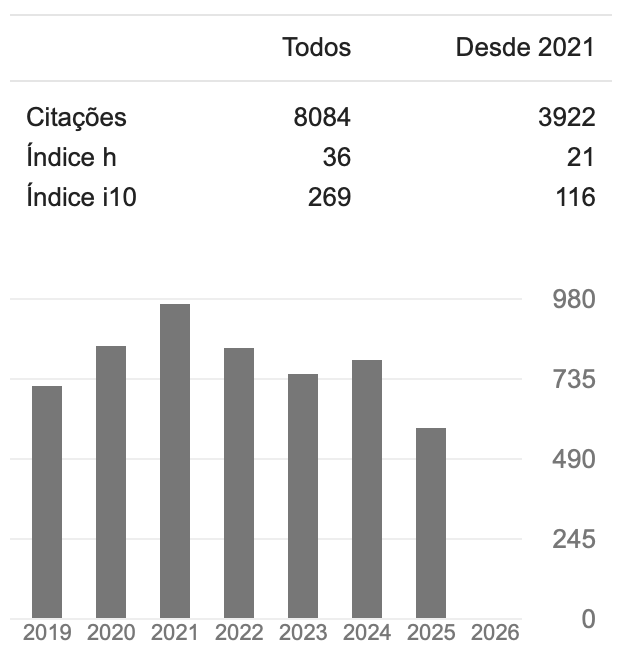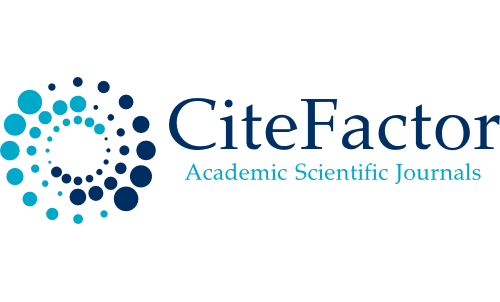Estrutura representacional da microcefalia e autoimagem de mães de crianças com tal condição neurológica
DOI:
https://doi.org/10.17765/2176-9206.2020v13n3p631-643Palavras-chave:
Microcefalia, Autoimagem, Psicologia em saúde, Psicologia socialResumo
Objetivou-se no presente estudo analisar a estrutura representacional da microcefalia, bem como da autoimagem que mães de crianças com tal condição neurológica possuem. Participaram da pesquisa 105 brasileiras com idades entre 20 e 50 anos (M=31; DP=7,32), que moram, maioritariamente, na região Sudeste do Brasil (39,0%). Para recolha de dados, em 2018, foi utilizado a Técnica de Associação Livre de Palavras. Análises prototípicas do material coletado demonstraram que as participantes constroem suas representações sobre a microcefalia com base no conhecimento científico, a descrevendo, ainda, através de signos que se referem à espiritualidade e ao amor. No que diz respeito à autoimagem dos participantes, foi possível perceber elementos que remetem-se a resiliência, além de outros fatores associados a características auto-transcendentes. As representações identificadas revelam processos adaptativos, a partir da alocação de recursos resilientes que permitem com que as participantes deste estudo ressignifiquem sua condição de mães de crianças com microcefalia.Downloads
Referências
Ribeiro IG, Andrade MR, Silva JM, Silva ZM, Costa MAO, Silva Vieira MAC, et al. Microcephaly in Piauí, Brazil: descriptive study during the Zika virus epidemic, 2015-2016. Epidemiol Serv Saude. 2018; 27(1): 1-11. Available from: http://www.scielo.br/pdf/ress/v27n1/en_2237-9622-ress-27-01-e20163692.pdf
Quirino EMB, Pinho CM, Silva MAS, Dourado CARO, Lima MCL, Andrade MS. Epidemiological and clinical profile of microcephaly cases. Enfermería Global. 2020; 19(57): 167-208. Available from: https://revistas.um.es/eglobal/article/view/366701/275961
Araújo JSS, Regis CT, Gomes RGS, Tavares TR, Santos CR, Assunção PM, et al. Microcephaly in north-east Brazil: A retrospective study on neonates born between 2012 and 2015. Bull World Health Organ. 2016; 94(11): 835-40. Available from: https://www.who.int/bulletin/volumes/94/11/16-170639.pdf
Cabral CM, Nóbrega MEB, Leite PL, Souza MSF, Teixeira DCP, Cavalcante TF, et al. Clinical-epidemiological description of live births with microcephaly in the state of Sergipe, Brazil, 2015. Epidemiol Serv Saude. 2017; 26(2): 245-54. Available from: http://www.scielo.br/pdf/ress/v26n2/en_2237-9622-ress-26-02-00245.pdf
Marinho F, Araújo VEM, Porto DL, Ferreira HL, Coelho MRS, Lecca RCR, et al. Microcephaly in Brazil: prevalence and characterization of cases from the Information System on Live Births (Sinasc), 2000-2015. Epidemiol Serv Saude. 2016; 25(4): 701-12. Available from: http://www.scielo.br/pdf/ress/v25n4/en_2237-9622-ress-S1679_49742016000400004.pdf
Santos José Alcides Figueiredo. Classe Social, território e desigualdade de saúde no Brasil. Saude soc. 2018; 27(2): 556-72. Available from: http://www.scielo.br/scielo.php?script=sci_arttext&pid=S0104-12902018000200556&lng=en
Freitas PDSS, Soares GB, Mocelin HJS, Lacerda LCX, do Prado TN, Sales CMM, et al. Congenital Zika syndrome: sociodemographic profile of mothers. Rev Panam Salud Publica. 2019; 43(24): 1-7. Available from: https://iris.paho.org/bitstream/handle/10665.2/49776/v43e242019.pdf?sequence=5&isAllowed=y
Albuquerque MFPM, Souza WV, Araújo TVB, Braga MC, Filho DBM, Ximenes RAA, et al. The microcephaly epidemic and Zika virus: building knowledge in epidemiology. Cad Saude Publica. 2010; 34(10): 1-14, 2018. Available from: http://www.scielo.br/pdf/csp/v34n10/en_1678-4464-csp-34-10-e00069018.pdf
Brasil. Ministério da Saúde (BR). Secretaria de Atenção à Saúde. Protocolo de atenção à saúde e resposta à ocorrência de microcefalia. Brasília (DF): Ministério da Saúde; 2016. Available from: http://bvsms.saude.gov.br/bvs/publicacoes/protocolo_resposta_microcefalia_relacionada_infeccao_virus_zika.pdf.
Goffman E. Estigma: notas sobre a manipulação da identidade deteriorada. Rio de Janeiro: LTC; 2008.
Costa Filho JA. Sexualidade no contexto da paraplegia: um estudo das representações sociais. João Pessoa. Tese [Doutorado em Psicologia Social] – Universidade Federal da Paraíba; 2017. 167 p. Available from: https://repositorio.ufpb.br/jspui/bitstream/123456789/12144/1/Arquivototal.pdf.
Barros SMM, Monteiro PAL, Neves MB, Maciel GTS. Strengthening the support network of mothers in the context of congenital zika virus syndrome: Reports of a psychosocial and systemic intervention. Nova Perspectiva Sistêmica. 2017; 26(58): 38-59. Available from: http://pepsic.bvsalud.org/pdf/nps/v26n58/n26a04.pdf.
Oliveira IG, Polleto M. Emotional experiences of mothers and fathers of children with disabilities. Revista SPAGESP. 2015; 16(2): 102-19. Available from: http://pepsic.bvsalud.org/pdf/rspagesp/v16n2/v16n2a09.pdf.
Oliveira DC. Social representations and public health care: subjectivity as a participant in the daily routine in health care. Revista de Ciências Humanas. 2000; 3(1): 47-65. Available from: https://periodicos.ufsc.br/index.php/revistacfh/article/view/24123
Moscovici S. Representações Sociais: Investigações em psicologia social. Petrópolis (RJ): Vozes; 2017.
Abric JC. Abordagem estrutural das representações sociais: desenvolvimentos recentes. In: Campos PHF, Loureiro MC. Representações sociais e práticas educativas. Goiânia: UCG; 2003. p. 37-57.
Coutinho MPL, Do Bú EA. 2017. A técnica de associação livre de palavras sobre o prisma do software tri-deux-mots (version 5.2). Revista Campo do Saber. 2017; 3(1): 219-43. Available from: http://periodicos.iesp.edu.br/index.php/campodosaber/article/view/72/58.
Camargo BV, Justo AM. 2018. Tutorial para uso do software IRAMUTEQ: Interface de R pour les Analyses Multidimensionnelles de Textes et de Questionnaires. Laboratório de Psicologia Social da Comunicação e Cognição, UFSC, Florianópolis. Available from: http://iramuteq.org/documentation/fichiers/tutoriel-portugais-22-11-2018.
Sá CPD. Núcleo central das representações sociais. Petrópolis (RJ): Vozes; 2002.
Brasil. Ministério da Saúde (BR). Resolução 510/2016. Diretrizes e normas regulamentadoras de pesquisas envolvendo seres humanos. Brasília (DF): Ministério da Saúde/Conselho Nacional de Saúde; 2016.
Kochla KRA. O encontro do sentido: uma luz para a trajetória resiliente das mães que vivenciam o câncer. Curitiba. Tese [Doutorado em Prática Profissional de Enfermagem] - Universidade Federal do Paraná; 2014. 105 p. Available from: https://acervodigital.ufpr.br/bitstream/handle/1884/37347/R%20-%20T%20-%20KATIA%20RENATA%20ANTUNES%20KOCHLA.pdf?sequence=1&isAllowed=y
Nascimento IP, Gomes RM, Vieira SNS, Guedes TP, Santana GJ, Silva FN. Virus zika and microcefalia: The mother faces the diagnosis of the son. Revista Interscientia. 2019; 17(1): 54-65. Available from: https://periodicos.unipe.edu.br/index.php/interscientia/article/view/918/614.
Mata, CCSD. 2018. A questão do vínculo mãe-filho: o mito do amor materno. Colegiado de Psicologia. 2018. Available from: https://repositorio.pgsskroton.com.br/bitstream/123456789/21295/1/01-%20A%20quest%C3%A3o%20do%20v%C3%ADnculo.pdf.
Kierkegaard S. As obras do amor. Petrópolis (RJ): Vozes; 2005.
Sousa DS. The Christian Ethic of Love in Kierkegaard. Perspectiva Teológica. 2018; 50(1): 111-34. Available from: https://www.researchgate.net/publication/324822189_A_ETICA_CRISTA_DO_AMOR_EM_KIERKEGAARD
Campos MMMS, Sousa TC, Teixeira GP, Chaves KYS, Araújo MVUM, Sousa MR. Challenges and perspectives of mothers of children with microcephaly due to Zika virus infection. Rev. RENE. 2018; 19: 1-8. Available from: http://periodicos.ufc.br/rene/article/view/32839/pdf
Andrade FMRR. O luto do filho idealizado: pais da criança com síndrome de down. Lisboa. Dissertação [Mestrado em Psicologia Clínica] – Instituto Universitário de ciências psicológicas, sociais e da vida; 2017. 142 p. Available from: http://repositorio.ispa.pt/bitstream/10400.12/4467/1/18716.pdf.
Hamad GBNZ, Souza KVD. 2019. Special child, special mother: the sense of strength in mothers of children with congenital zika virus syndrome. Escola Anna Nery. 2019; 23(4): 1-9. Available from: http://www.scielo.br/pdf/ean/v23n4/1414-8145-ean-23-04-e20190022.pdf
Nunes CK, Silva GFR, Santos FZ. As representações sociais da maternidade para mães de filhos/as com deficiência. Rev. Psicol. Saúde. 2019; 11(3): 79-96. Available from: http://pepsic.bvsalud.org/scielo.php?script=sci_arttext&pid=S2177-093X2019000300006&lng=pt. http://dx.doi.org/10.20435/pssa.v0i0.608.
Nascimento ACA. Resiliência e sensibilidade materna na interação mãe-criança com fissura lábiopalatina. Campinas. Tese [Doutorado em Psicologia] - Pontifícia Universidade Católica de Campinas; 2006. 201 p. Available from: http://tede.bibliotecadigital.puc-campinas.edu.br:8080/jspui/bitstream/tede/360/1/Ana%20cristina%20Araujo%20do%20Nascimento%202.pdf.
Arquivos adicionais
Publicado
Como Citar
Edição
Seção
Licença
A submissão de originais para a revista Saúde e Pesquisa implica na transferência da Carta Concessão de Direitos Autorais, pelos autores, dos direitos de publicação digital para a revista após serem informados do aceite de publicação.A Secretaria Editorial irá fornecer da um modelo de Carta de Concessão de Direitos Autorais, indicando o cumprimento integral de princípios éticos e legislação específica. Os direitos autorais dos artigos publicados nesta revista são de direito do autor, com direitos da revista sobre a primeira publicação. Os autores somente poderão utilizar os mesmos resultados em outras publicações, indicando claramente a revista Saúde e Pesquisa como o meio da publicação original. Em virtude de tratar-se de um periódico de acesso aberto, é permitido o uso gratuito dos artigos, principalmente em aplicações educacionais e científicas, desde que citada a fonte. A Saúde e Pesquisa adota a licença Creative Commons Attribution 4.0 International.
A revista se reserva o direito de efetuar, nos originais, alterações de ordem normativa, ortográfica e gramatical, com vistas a manter o padrão culto da língua e a credibilidade do veículo. Respeitará, no entanto, o estilo de escrever dos autores. Alterações, correções ou sugestões de ordem conceitual serão encaminhadas aos autores, quando necessário. Nesses casos, os artigos, depois de adequados, deverão ser submetidos a nova apreciação. As opiniões emitidas pelos autores dos artigos são de sua exclusiva responsabilidade.


















